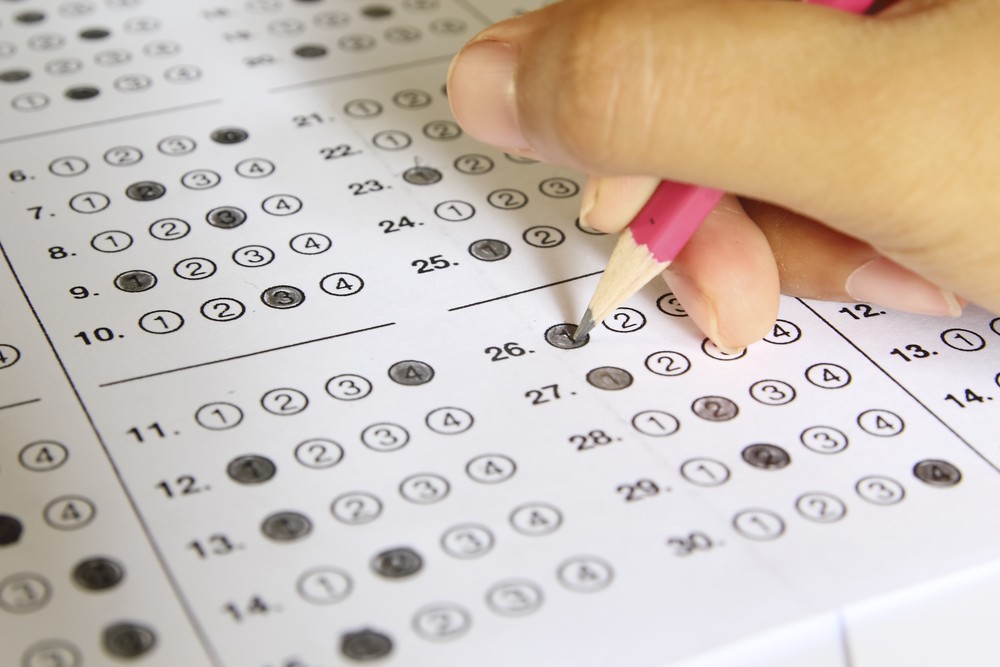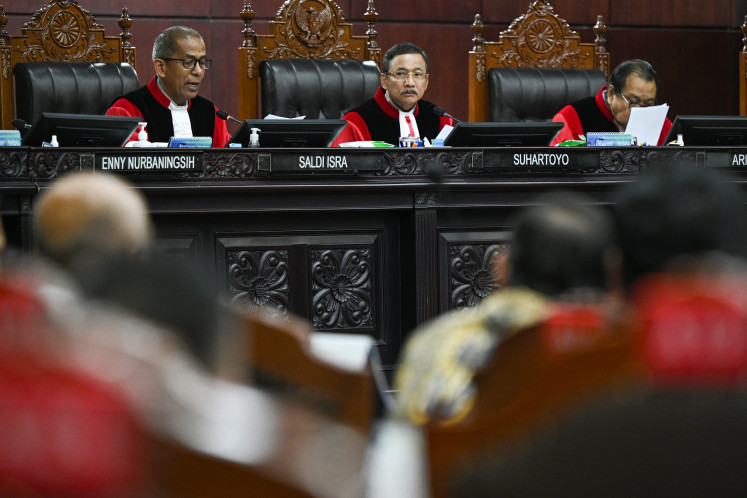Popular Reads
Top Results
Can't find what you're looking for?
View all search resultsPopular Reads
Top Results
Can't find what you're looking for?
View all search resultsGraft case exposes enrollment abuses
University of Lampung (Unila) rector Karomani was arrested by Corruption Eradication Commission (KPK) investigators late last week on allegations that he had amassed a total of Rp 5 billion (US$336,472) in bribes from prospective parents in exchange for admitting their children into the university.
Change text size
Gift Premium Articles
to Anyone
P
ressure continues to mount for a more open and transparent admission process to state universities, particularly in light of a recent graft case that has implicated a rector in Lampung.
University of Lampung (Unila) rector Karomani was arrested by Corruption Eradication Commission (KPK) investigators late last week on allegations that he had amassed a total of Rp 5 billion (US$336,472) in bribes from prospective parents in exchange for admitting their children into the university. He is accused of instructing two other suspects to handpick prospective students based on their parents’ ability to provide a "base fee" to the university through the independent enrollment track.
A base fee, which is paid only once in addition to the tuition, can be worth millions of rupiah. Unila’s medical school, for instance, sets a minimum of Rp 250 million for a base fee – meaning that parents are free to pay up more.
Education experts have suggested that Karomani’s alleged crime derived from the fact that the independent enrollment scheme lacks transparency.
Aside from the independent enrollment scheme, a student has two other options to enroll in a state university – via the performance-based entrance tests (SNMPTN), in which universities select hopeful students based on their academic performance during high school, and nationwide annual entrance tests (SBMPTN), in which students sit a standardized test.
While the SNMPTN and SBMPTN are government-sanctioned and closely monitored, the independent scheme has its results decided solely by the university rectorate, often with a lack of clear-cut guidelines and transparency.
Read also: Corruption major issue in rector election
Experts also said Karomani's alleged actions went against many fundamental principles of education, including good governance in education and that it instilled the wrong mindset in the students and parents.
“If parents justify any means necessary to get their children enrolled in state universities, this also means that they are teaching their children that throwing money at a problem is a solution,” education expert Ina Liem said on Wednesday.
Another education expert Indra Charismiadji said that the widespread practice of bribing educational institutions for admission showed how the national educational system “has actually failed in educating the public".
With a new national education system bill currently being drafted, Indra said that the government should take this opportunity and revamp the country’s education policies, including how best to approach university admissions, particularly since the lack of integrity in education requires a more long-term solution.
Read also: Educators want govt to hold off on omnibus education bill
Ina, meanwhile, called for a more short-term solution, saying that the government should do away with the independent track and the practice of applying base fees in state universities, while also increasing monitoring and surveillance in order to ensure a more open and transparent process.
‘Tip of iceberg’
While the Unila case has grabbed the national attention, Rahmat Hidayat, a sociology professor from Jakarta State University, said that it was only the “tip of the iceberg” and that many more similar cases went unnoticed.
“These practices have long been happening. These deals usually happen in independent enrollment tracks secretly, between parents and the universities' higher-ups under the guise of ‘base fees’,” Rahmat said.
Read also: University student suspended after reporting rector over alleged graft
He said that parents tended to think that state universities were more prestigious and could guarantee better career prospects for their children. Therefore, they would tend to justify spending exorbitant amounts of money through donations or enrollment fees in the hopes of having their child admitted through the independent track.
“The scheme is supposed to be the university’s way of giving back to the community by prioritizing the slots for students from low-income families living around the campuses. But, in reality, it could not be further than the truth,” Rahmat added.
Better system
The Education, Culture, Research and Technology Ministry's director general for higher education, Nizam, lamented Karomani’s alleged actions. But he also said that the public should not assume this to be the case with rectors of other state universities.
“The case in Unila is an abuse [of power] committed only by a handful of people, please don't generalize this case. [We are committed] to maintaining that any [university admission] scheme must still be based on academic performance, not based on financial ability,” Nizam said.
He went on to say that, while the independent enrollment track was geared to provide each state university with some leeway in deciding student enrollment based on their own unique criteria, the ministry would review it and build a more prudent and transparent enrollment system.










